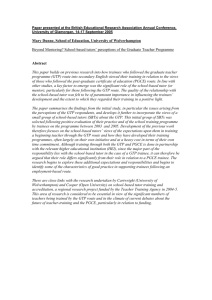PGCE Secondary History This is a highly practical and focused
advertisement
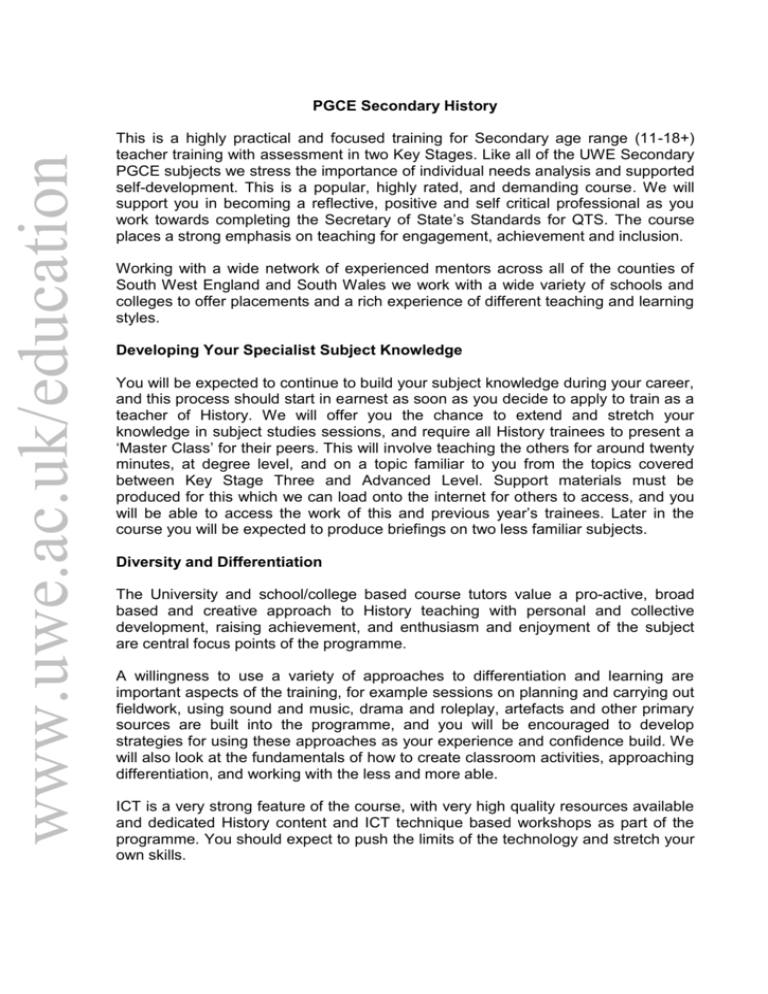
www.uwe.ac.uk/education PGCE Secondary History This is a highly practical and focused training for Secondary age range (11-18+) teacher training with assessment in two Key Stages. Like all of the UWE Secondary PGCE subjects we stress the importance of individual needs analysis and supported self-development. This is a popular, highly rated, and demanding course. We will support you in becoming a reflective, positive and self critical professional as you work towards completing the Secretary of State’s Standards for QTS. The course places a strong emphasis on teaching for engagement, achievement and inclusion. Working with a wide network of experienced mentors across all of the counties of South West England and South Wales we work with a wide variety of schools and colleges to offer placements and a rich experience of different teaching and learning styles. Developing Your Specialist Subject Knowledge You will be expected to continue to build your subject knowledge during your career, and this process should start in earnest as soon as you decide to apply to train as a teacher of History. We will offer you the chance to extend and stretch your knowledge in subject studies sessions, and require all History trainees to present a ‘Master Class’ for their peers. This will involve teaching the others for around twenty minutes, at degree level, and on a topic familiar to you from the topics covered between Key Stage Three and Advanced Level. Support materials must be produced for this which we can load onto the internet for others to access, and you will be able to access the work of this and previous year’s trainees. Later in the course you will be expected to produce briefings on two less familiar subjects. Diversity and Differentiation The University and school/college based course tutors value a pro-active, broad based and creative approach to History teaching with personal and collective development, raising achievement, and enthusiasm and enjoyment of the subject are central focus points of the programme. A willingness to use a variety of approaches to differentiation and learning are important aspects of the training, for example sessions on planning and carrying out fieldwork, using sound and music, drama and roleplay, artefacts and other primary sources are built into the programme, and you will be encouraged to develop strategies for using these approaches as your experience and confidence build. We will also look at the fundamentals of how to create classroom activities, approaching differentiation, and working with the less and more able. ICT is a very strong feature of the course, with very high quality resources available and dedicated History content and ICT technique based workshops as part of the programme. You should expect to push the limits of the technology and stretch your own skills. www.uwe.ac.uk/education There is a strong emphasis on ‘education beyond the traditional confines,’ and we value our strong links with national and regional Museums Archives and Galleries as a central element of the course. We offer day sessions and optional residential fieldwork with a view to examining use of heritage sites, museums and the landscape with young people. There will be visits to the British Empire and Commonwealth Museum, Bristol City Museums and the Imperial War Museum, London, the National Monuments Record and the National Trust as well as input from colleagues in the Education Departments of the local Museums. The course ends with a session supporting hundreds of school pupils at Chepstow Castle- with the entire Art and Design, Design and Technology and History groups in costume and in role. Placements During the year trainees spend 24 weeks on placement, which could be in Bristol, as far south as Southern Cornwall, as far east as Reading or south east into Dorset, north into Gloucestershire or west into South Wales. A small number of trainees spend the final weeks of their training based in special schools, museum education departments or ICT centres- ask us about this innovative and stretching opportunity to explore History education in a different setting. Twelve weeks are spent in university based training mainly planned across the Autumn and Spring terms. Access to a computer during the entire training process is important since many of the documents, elements of Tutor support and guidance and other communication will be electronically transferred via email, other ICT systems, or within the University’s electronic resources. Access to computer workstations at the University and whilst in host placements can be provided for trainees who do not own a desktop or portable computer of their own, and the University has a scheme for computer purchase at favourable rates for those who wish to buy hardware. Preparing For Training Prior to the start of your course applicants who have been offered and have accepted a place receive a ‘welcome pack’ to help them prepare for what is a demanding but stretching and hugely enjoyable year. The Group Tutor will also make e-mail contact with the group during the term before the course begins to offer guidance on preparation. The Secondary History curriculum ranges from 1066 to the present and all trainees acknowledge that developing their subject knowledge is a major demand during training (and after.) Our reading list provides some book titles which might help you develop your historical knowledge, and you should begin this process as soon as possible. We advise all potential trainees to spend as much time as they can observing classes in a range of mainstream state schools to familiarise themselves with the nature of young people and schools. As soon as you are ready for it we will provide a briefing on the History Curriculum at Secondary School/College level; guidance for finding out about the History curriculum in more depth; a detailed reading list and further advice on guided reading. Dean Smart (PGCE History Tutor) E-mail: Dean.Smart@uwe.ac.uk Tel: 0117 328 4203 UWE 07515283572 M
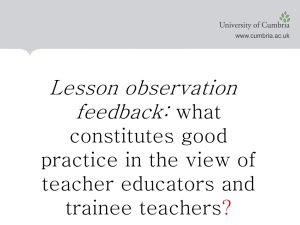

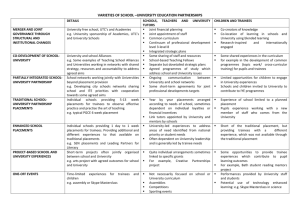

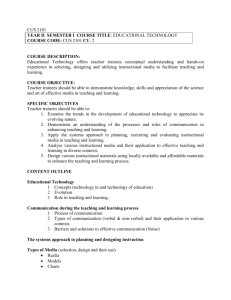
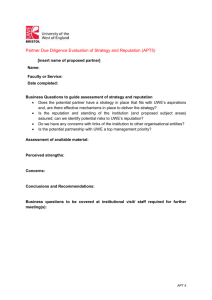
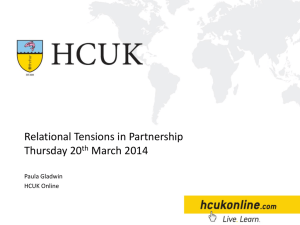
![pgcesec [int] - University of the West of England](http://s3.studylib.net/store/data/008955616_1-50f26c634d6a7175143e6068d16dc5e7-300x300.png)
